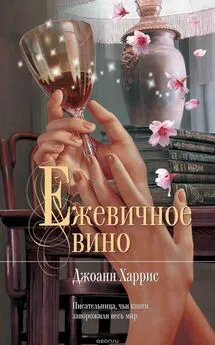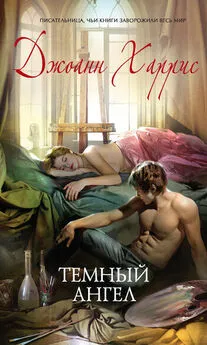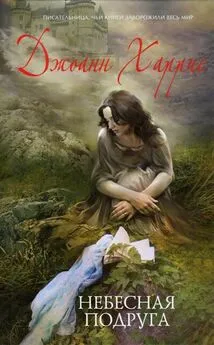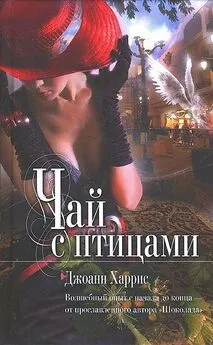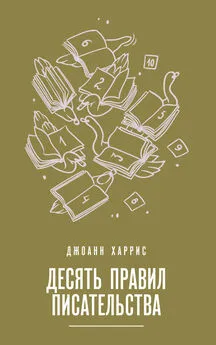Джоанн Харрис - Шоколад / Chocolat
- Название:Шоколад / Chocolat
- Автор:
- Жанр:
- Издательство:неизвестно
- Год:2021
- Город:Москва
- ISBN:978-5-04-117086-8
- Рейтинг:
- Избранное:Добавить в избранное
-
Отзывы:
-
Ваша оценка:
Джоанн Харрис - Шоколад / Chocolat краткое содержание
«Шоколад» – это история о доброте и терпимости, о противостоянии невинных соблазнов и закоснелой праведности. Одноименный голливудский фильм режиссера Лассе Халлстрёма (с Жюльетт Бинош, Джонни Деппом и Джуди Денч в главных ролях) был номинирован на «Оскар» в пяти категориях и на «Золотой глобус» – в четырех.
В формате PDF A4 сохранен издательский макет книги.
Шоколад / Chocolat - читать онлайн бесплатно ознакомительный отрывок
Интервал:
Закладка:
Is that so bad? Cure Reynaud thinks so, apparently.
“Here, Charly. Here boy.”
Guillaume’s voice is warm when he speaks to his dog, but always a little sad. He bought the animal when his father died, he tells me. That was eighteen years ago. But a dog’s life is shorter than a man’s, and they grew old together.
“It’s here.” He brings my attention to a growth under Charly’s chin. It is about the size of a hen’s egg, gnarled like an elm burr. “It’s growing.” A pause during which the dog stretches luxuriously, one leg pedalling as, his master scratches his belly. “The vet says there’s nothing to be done.”
I begin to understand the look of guilt and love I see in Guillaume’s eyes.
“You wouldn’t put an old man to sleep,” he tells me earnestly. “Not if he still had”– he struggles for words “some quality of life. Charly doesn’t suffer. Not really.”
I nod, aware he is trying to convince himself.
“The drugs keep it under control.”
For the moment. The words ring out unspoken.
“When the time comes, I’ll know.” His eyes are soft and horrified. “I’ll know what to do. I won’t be afraid.”
I top up his chocolate-glass without a word and sprinkle the froth with cocoa powder, but Guillaume is too busy with his dog to see. Charly rolls onto his back, head lolling.
“M’sieur le Cure says animals don’t have souls,” says Guillaume softly. “He says I should put Charly out of his misery.”
“Everything has a soul,” I answer. “That’s what my mother used to tell me. Everything.”
He nods, alone in his circle of fear and guilt.
“What would I do without him?” he asks, face still turned towards the dog, and I understand he has forgotten my presence. “What would I do without you?”
Behind the counter I clench my fist in silent rage. I know that look – fear, guilt, covetousness – I know it well. It is the look on my mother’s face the night of the Black Man. His words – What would I do without you? – are the words she whispered to me all through that miserable night. As I glance into my mirror last thing in the evening, as I awake with the growing fear – knowledge, certainty – that my own daughter is slipping away from me, that I am losing her, that I will lose her if I do not find The Place… it is the look on my own.
I put my arms around Guillaume. For a second he tenses, unused to female contact. Then he relaxes. I can feel the strength of his distress coming from him in waves.
“Vianne,” he says softly. “Vianne.”
“It’s all right to feel this way,” I tell him firmly. “It’s allowed.”
Beneath us, Charly barks his indignation.
We made close to three hundred francs today. For the first time, enough to break even. I told Anouk when she came home from school, but she looked distracted, her bright face unusually still. Her eyes were heavy, dark as the cloudline of an oncoming storm.
I asked her what was wrong.
“It’s Jeannot.” Her voice was toneless. “His mother says he can’t play with me any more.”
I remembered Jeannot as Wolf Suit in the Mardi Gras carnival, a lanky seven-year-old with shaggy hair and a suspicious expression. He and Anouk played together in the square last night, running and shouting arcane war cries, until the light failed. His mother is Joline Drou, one of the two primary teachers, a crony of Caroline Clairmont.
“Oh?” Neutrally. “What does she say?”
“She says I’m a bad influence.” She flicked a dark glance at me. “Because we don’t go to church. Because you opened on Sunday.”
You opened on Sunday.
I looked at her. I wanted to take her in my arms, but her rigid, hostile stance alarmed me. I made my voice very calm.
“And what does Jeannot think?” I asked gently.
“He can’t do anything. She’s always there. Watching.” Anouk’s voice rose shrilly and I guessed she was close to tears. “Why does this always have to happen?” she demanded. “Why don’t I ever-”
She broke off with an effort, her thin chest hitching.
“You have other friends.”
It was true; there had been four or five of them last night, the square ringing with their catcalls and laughter.
“Jeannot’s friends.”
I saw what she meant. Louis Clairmont. Lise Poitou. Hisfriends. Without Jeannot the group would soon disperse. I felt a sudden pang for my daughter, surrounding herself with invisible friends to people the spaces around her. Selfish, to imagine that a mother could fill that space completely. Selfish and blind.
“We could go to church, if that’s what you want.” My voice was gentle. “But you know it wouldn’t change anything.”
Accusingly, “Why not? They don’t believe. They don’t care about God. They just go.”
I smiled then, not without some bitterness. Six years old, and she still manages to surprise me with the depth of her occasional perception.
“That may be true,” I said. “But do you want to be like that?”
A shrug, cynical and indifferent. She shifted her weight from one foot to the other, as if in fear of a lecture. I searched for the words to explain. But all I could think of was the image of my mother’s stricken face as she rocked me and murmured, almost fiercely, What would I do without you? What would I do?
Oh, I taught her all of this long ago; the hypocrisy of the Church, the witch-hunts, the persecution of travellers and people of other faiths. She understands. But the knowledge does not transpose well to everyday life, to the reality of loneliness, to the loss of a friend.
“It’s not fair.”
Her voice was still rebellious, the hostility subdued but not entirely.
Neither was the sack of the Holy Land, nor the burning of Joan of Arc, nor the Spanish Inquisition. But I knew better than to say so. Her features were pinched; intense; any sign of weakness and she would have turned on me.
“You’ll find other friends.”
A weak and comfortless answer. Anouk looked at me with disdain.
“But I wanted this one.”
Her tone was strangely adult, strangely weary as she turned away. Tears swelled her eyelids, but she made no move to come to me for comfort. With a sudden overwhelming clarity I saw her then, the child, the adolescent, the adult, the stranger she would one day become, and I almost cried out in loss and terror, as if our positions had somehow been reversed, she the adult, I the child.
Please! What would I do without you?
But I let her go without a word, aching to hold her but too aware of the wall of privacy slamming down between us. Children are born wild, I know. The best I can hope for is a little tenderness, a seeming docility. Beneath the surface the wildness remains, stark, savage and alien.
She remained virtually silent for the rest of the evening. When I put her to bed she refused her story but stayed awake for hours after I had put out my own light. I heard her from the darkness of my room, walking to and fro, occasionally talking to herself – or to Pantoufle – in fierce staccato bursts too low for me to hear. Much later, when I was sure she was asleep, I crept into her room to switch off the light and found her, curled at the end of her bed, one arm flung wide, head turned at an awkward but absurdly touching angle that tore at my heart. In one hand she clutched a small Plasticine figure. I removed it as I straightened the bedclothes, meaning to return it to Anouk’s toybox. It was still warm from her hand, releasing an unmistakable scent of primary school, of secrets whispered, of poster paint and newsprint and half-forgotten friends.
Six inches long, a stick figure painstakingly rendered, eyes and mouth scratched on with a pin, red thread wound about the waist and something – twigs or dried grass – stuck into the scalp to suggest shaggy brown hair.
There was a letter scratched into the Plasticine-boy’s body, just above the heart; a neat capital J. Beneath it and just close enough to overlap, a letter A.
I replaced the figure softly on the pillow beside her head and left, putting out the light. Some time before dawn she crept into bed with me as she often had when she was a child, and through soft layers of sleep I heard her whisper,
“It’s all right, Maman. I’ll never leave you.” She smelt of salt and baby soap, her hug fierce and warm in the enclosing dark. I rocked her, rocked myself, in sweetness, hugged us both in relief so intense that it was almost pain. “I love you, Maman. I’ll always love you for ever. Don’t cry.”
I wasn’t crying. I never cry.
I slept poorly inside a kaleidoscope of dreams; awoke at dawn with Anouk’s arm across my face and a dreadful, panicky urge to run, to take Anouk and keep on running. How can we live here, how could we have been foolish enough to think he wouldn’t find us even here? The Black Man has many faces, all of them unforgiving, hard and strangely envious. Run, Vianne. Run, Anouk. Forget your small sweet dream and run.
But not this time. We have run too far already, Anouk and I, Mother and I, too far from ourselves.
This is one dream I mean to cling to.
9
Wednesday, February 19
This is our rest day. school is closed and, while Anouk plays by Les Marauds, I will receive deliveries and work on this week’s batch of items.
This is an art I can enjoy. There is a kind of sorcery in all cooking: in the choosing of ingredients, the process of mixing, grating, melting, infusing and flavouring, the recipes taken from ancient books, the traditional utensils – the pestle and mortar with which my mother made her incense turned to a more homely purpose, her spices and aromatics, giving up their subtleties to a baser, more sensual magic. And it is partly the transience of it that delights me; so much loving preparation, so much art and experience put into a pleasure which can last only a moment, and which only a few will ever fully appreciate.
My mother always viewed my interest with indulgent contempt. To her, food was no pleasure but a tiresome necessity to be worried over, a tax on the price of our freedom. I stole menus from restaurants and looked longingly into patisserie windows. I must have been ten years old – maybe older – before I first tasted real chocolate. But still the fascination endured. I carried recipes in my head like maps. All kinds of recipes; torn from abandoned magazines in busy railway stations, wheedled from people on the road, strange marriages of my own confection. Mother with her cards, her divinations directed our mad course across Europe. Cookery cards anchored us, placed landmarks on the bleak borders. Paris smells of baking bread and croissants; Marseille of bouillabaisse and grilled garlic. Berlin was Eisbrei with Sauerkraut and Kartoffelsalat, Rome was the ice-cream I ate without paying in a tiny restaurant beside the river.
Mother had no time for landmarks: All her maps were inside, all places the same. Even then we were different. Oh, she taught me what she could. How to see to the core of things, of people, to see their thoughts, their longings. The driver who stopped to give us a lift, who drove ten kilometres out of his way to take us to Lyon, the grocers who refused payment, the policemen who turned a blind eye. Not every time, of course. Sometimes it failed for no reason we could understand. Some people are unreadable, unreachable. Francis Reynaud is one of these. And even when it did not, the casual intrusion disturbed me. It was all too easy. Now making chocolate is a different matter. Oh, some skill is required. A certain lightness of touch, speed, a patience my mother would never have had. But the formula remains the same every time. It is safe. Harmless. And I do not have to look into their hearts and take what I need; these are wishes which can be granted simply, for the asking.
Читать дальшеИнтервал:
Закладка:
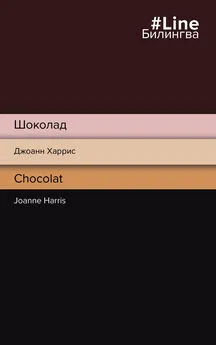
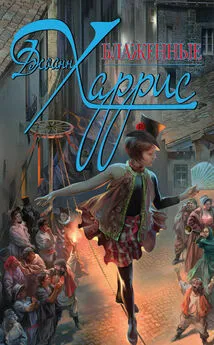
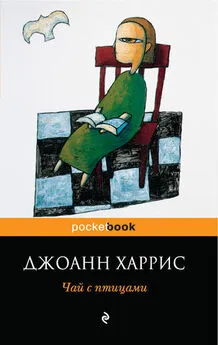
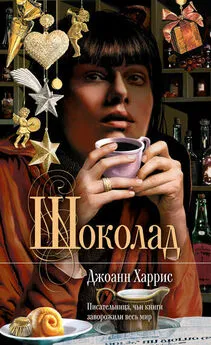
![Джоанн Харрис - Земляничный вор [litres]](/books/1072539/dzhoann-harris-zemlyanichnyj-vor-litres.webp)
![Джоанн Харрис - Джентльмены и игроки [litres]](/books/1087279/dzhoann-harris-dzhentlmeny-i-igroki-litres.webp)
